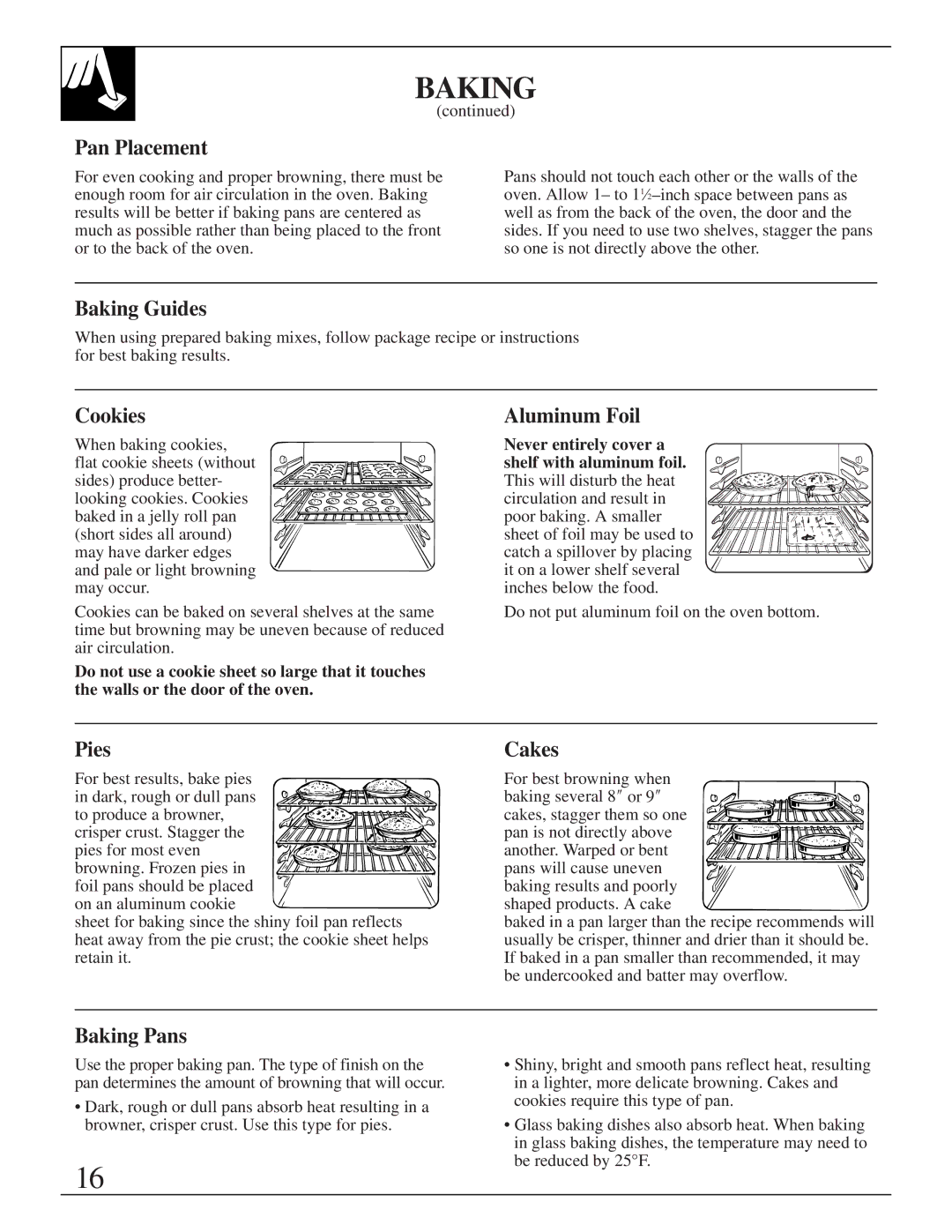
BAKING
(continued)
Pan Placement
For even cooking and proper browning, there must be enough room for air circulation in the oven. Baking results will be better if baking pans are centered as much as possible rather than being placed to the front or to the back of the oven.
Pans should not touch each other or the walls of the oven. Allow 1– to
Baking Guides
When using prepared baking mixes, follow package recipe or instructions for best baking results.
Cookies
When baking cookies, flat cookie sheets (without sides) produce better- looking cookies. Cookies baked in a jelly roll pan (short sides all around) may have darker edges and pale or light browning may occur.
Cookies can be baked on several shelves at the same time but browning may be uneven because of reduced air circulation.
Do not use a cookie sheet so large that it touches the walls or the door of the oven.
Aluminum Foil
Never entirely cover a shelf with aluminum foil. This will disturb the heat circulation and result in poor baking. A smaller sheet of foil may be used to catch a spillover by placing it on a lower shelf several inches below the food.
Do not put aluminum foil on the oven bottom.
Pies
For best results, bake pies
in dark, rough or dull pans to produce a browner, crisper crust. Stagger the pies for most even browning. Frozen pies in foil pans should be placed on an aluminum cookie
sheet for baking since the shiny foil pan reflects heat away from the pie crust; the cookie sheet helps retain it.
Cakes
For best browning when
baking several 8″ or 9″ cakes, stagger them so one pan is not directly above another. Warped or bent pans will cause uneven
baking results and poorly shaped products. A cake
baked in a pan larger than the recipe recommends will usually be crisper, thinner and drier than it should be. If baked in a pan smaller than recommended, it may be undercooked and batter may overflow.
Baking Pans
Use the proper baking pan. The type of finish on the pan determines the amount of browning that will occur.
•Dark, rough or dull pans absorb heat resulting in a browner, crisper crust. Use this type for pies.
•Shiny, bright and smooth pans reflect heat, resulting in a lighter, more delicate browning. Cakes and cookies require this type of pan.
•Glass baking dishes also absorb heat. When baking in glass baking dishes, the temperature may need to be reduced by 25°F.
16
